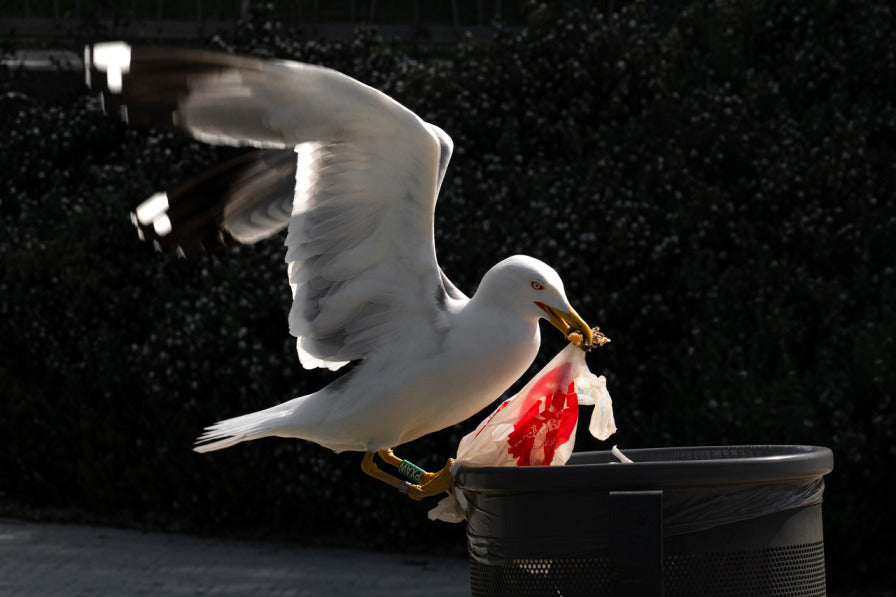OR
Express Checkout
We guarantee to have the lowest price! Find the same bin for a cheaper price and we will beat it!

Seagull attacks and transportability issues have compelled Newquay residents to campaign for wheelie bins for all, as their standard rubbish bins have been foul food for the birds that have littered their contents across neighbourhoods and streets.
The problem isn't an epidemic, but the margins of benefits see to provide just enough financial incentive to take these complaints seriously; the amount of time and money that is spent cleaning up the scattered rubbish from mealtime birds easily covers the cost of residential and business wheelie bins that would prevent seagulls from picking through rubbish in the first place.
The cost to council tax is balancing out more and more as Newquay continues to spend tax revenue compensating for their trash problem, and the old adage of being 'pennywise pound foolish' is beginning to ring in the ears of many council members who want a permanent solution to this time-wasting problem.

Local campaigners have already collected hundreds of petition signatures, and information press releases are being prepared to inform people about the long term benefits of wheelie bin upgrades.
Opponents of this measure argue that there are more practical ways to solve the rubbish problem than upgrading Newquay's bin standards. Alex Folkes, a Cornwall Council member, has suggested several measures to prevent avian menaces from having the time or the means to scatter rubbish about. In addition to simply putting bins out for collection on a timelier schedule that gives seagulls and the like less time to pick through the contents, people can also place covering items like carpets over the unprotected tops of the bins.
Folkes' argument comes from a principled place; namely, that the responsibility of maintaining a resident's rubbish begins and end with the resident. Overhauling Newquay's 270,000 houses with wheelie bins would cost the council a deal of money, and in Folkes' opinion, it's simply out of the question. “The responsibility for rubbish stays with the resident until it is collected by the council,” he blogged in response to the wheelie bin campaign.
Cornwall Council as a whole is backing Folkes. It's difficult to sort through the budget and figure out whether or not wheelie bins are the practical solution for seagulls, but both sides of the aisle seem less interested in reaching compromises than keeping their attentions focused on their platforms. Although many residents have taken the situation into their own hands and instigated measures to protect their rubbish bags, others consider the problem an obvious indicator of outdated bin models in desperate need of replacement.

How Newquay residents on the whole feel about their present bins remains a mystery, and while the wheelie bin campaign is dedicated to collecting as many signatures as possible in order to convince the council of the severity of their problem, the rubbish problem does remain localized to certain neighbourhoods of Newquay and may not be costing the city as much time and clean up money as the wheelie bin rollout would. Matters of practicality are going to make or break these stalemates, and so long as it remains more expensive to upgrade Newquay with wheelie bins that upgrade remains an uphill fight. The only question is whether or not the litter caused by the seagulls and the unprotected rubbish inhibits the city's rubbish operations enough to necessitate the investment in a permanent solution.